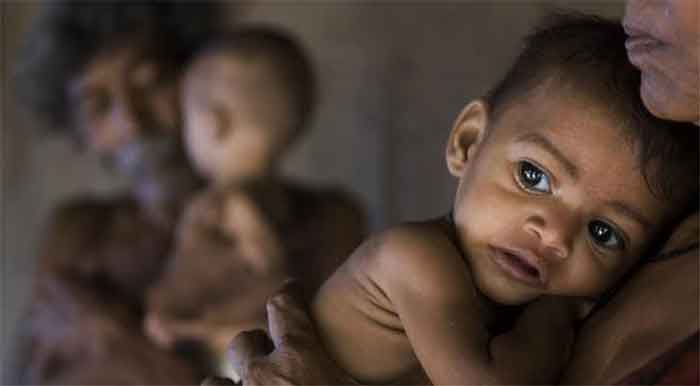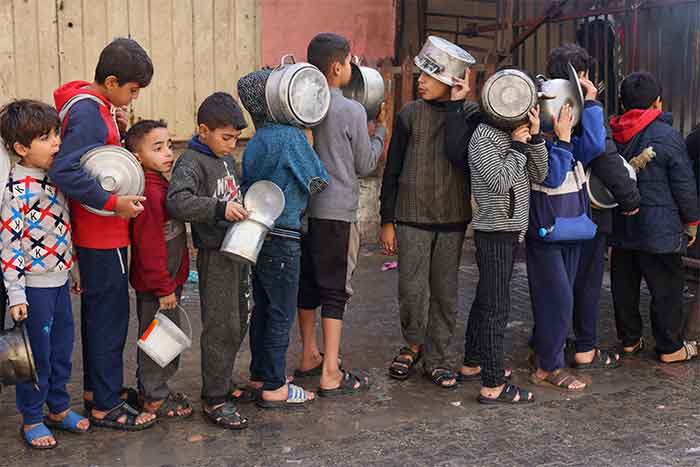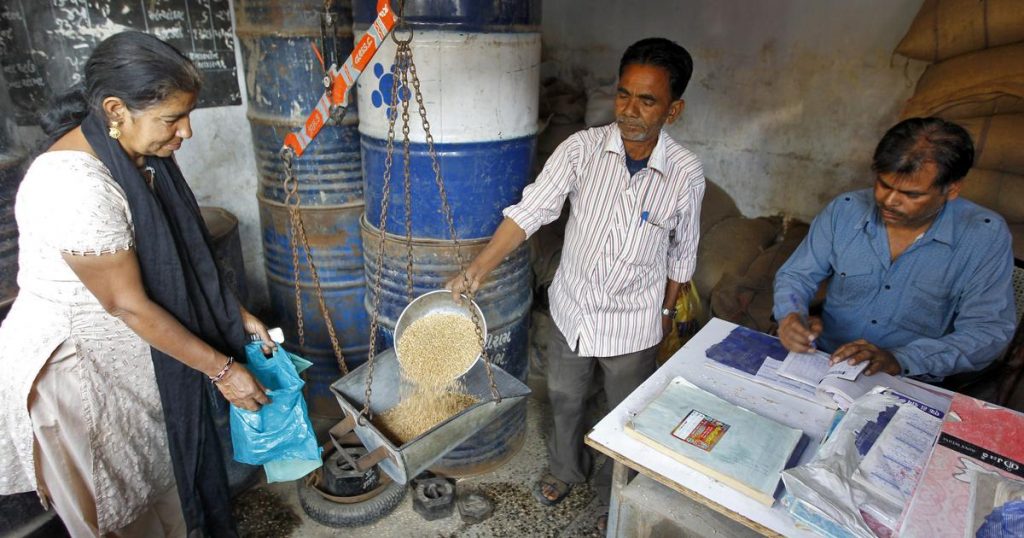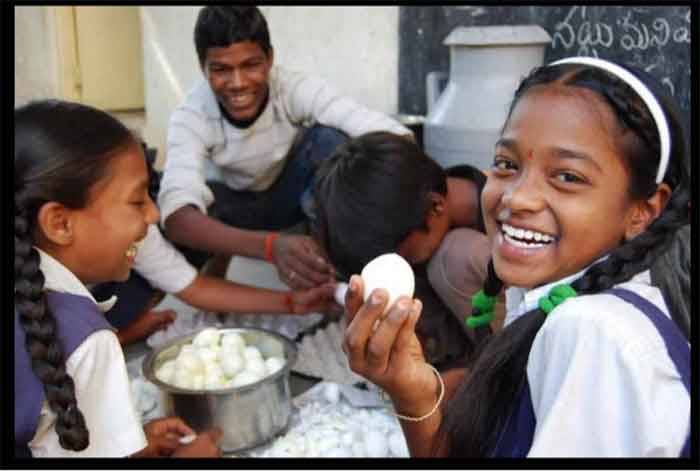
As we approach the final Budget to be presented by this government, we demand that the Central government, at least now, acknowledges its responsibility towards ensuring the implementation of maternity entitlements for all women and pregnant persons in the country as promised in the National Food Security Act, 2013 (hereafter NFSA).
The NFSA includes an important provision for universal maternity benefits, under Section 4: “Subject to such schemes as may be framed by the Central Government, every pregnant woman, and lactating mother shall be entitled to—(a) meal, free of charge, during pregnancy and six months after the childbirth, through the local anganwadi, to meet the nutritional standards specified in Schedule II; and (b) maternity benefit of not less than rupees six thousand, in such instalments as may be prescribed by the Central Government: Provided that all pregnant women and lactating mothers in regular employment with the Central Government or State Governments or Public Sector Undertakings or those who are in receipt of similar benefits under any law for the time being in force shall not be entitled to benefits specified in clause (b).”
This crucial provision aims at providing wage compensation by primarily supporting women in ensuring nutrition for themselves and their child. Considering that more than 95% of women in the country are not in employment that qualifies for maternity leave, this is currently the only maternity entitlement that is available for most pregnant women in the country. The latest available data shows that in 2017, the Central Government launched the Pradhan Mantri Matru Vandana Yojana (PMMVY), in pursuance of Section 4 of the NFSA. The PMMVY is however in contravention to the NFSA as it provides only Rs 5000 per woman while the Act says “not less than 6000” and restricts the benefits to only the “first living child” in a family, while the Act places no such restrictions. Further, the scheme also includes certain conditionalities related to accessing services, which effectively shifts the onus onto the woman rather than providing a guarantee that services will be available.
Last year, a decision was taken to extend the scheme to the second child, only if this is a girl child. While this is a welcome step, there is no justification for not including ALL children and pregnant women under the PMMVY. Restricting maternity benefits to the first child (or up to the second in the case of a girl) is an act of discrimination against higher birth-order children, violates their constitutional right to equality, and also represents a restriction on women’s reproductive freedoms.
Even this restricted scheme has been neglected with poor allocations and implementation hurdles.
Since its inception in 2017, PMMVY has never covered more than 50% of all pregnancies in the country. Further, the limited progress made under PMMVY by the end of 2019 was largely undone during the COVID-19 crisis. As seen in data collected from the Ministry of Women and Child Development through an RTI, the number of women who received some PMMVY benefits crashed from 96 lakh in 2019-20 to 75 lakh in 2020-21 and 61 lakh in 2021-22 – a decline of nearly 40% over two years[1]. The poor budgetary allocations have been one of the major reasons for the current poor coverage of the scheme. In FY 2022-23, 2,048 crore was allocated to PMMVY 2.0 in the Budget Estimates (BEs). This was approximately 5 percent lower than the BEs (2,150 crores) in FY 2021-22. In the Budget 2023-24[2], no separate allocations are mentioned for PMMVY.
On the ground, it is seen that the number of installments, the paperwork requirement, and extensive form filling are unnecessary hurdles for women and they are unable to avail of the scheme’s benefits despite being eligible. The burdensome formalities and the conditionalities for being eligible have led to a massive decline in the PMMVY recipients.
The Right to Food Campaign demands that the maternity entitlements must be expanded to cover ALL pregnant women, irrespective of the number of children or any other conditionalities (except those receiving maternity benefits of a higher amount from an employer or any other government scheme). Section 4 of the NFSA provides for maternity benefits of Rs 6,000 per child. This norm was set in 2013 but naturally, the benefits should be raised over time to take into account increases in the price level at the very least. This is so that their value does not decline in real terms. The current norm in Tamil Nadu seems more appropriate where Rs 18,000 per child (Rs 14,000 in cash and a kind benefit of two nutrition kits worth Rs 4000) is being given. However, this amount also is minuscule compared to the maternity benefits paid to government employees, including 26 weeks of paid maternity leave.
We also appeal to all political parties to include universal and wage-linked maternity entitlements in their manifesto as we move towards the General Elections later this year.
On behalf of the Steering Committee of the Right to Food Campaign:
National Networks:
Aysha and Gangaram Paikra (Conveners- Steering committee), Kavita Srivastava (People’s Union for Civil Liberties (PUCL), Anjali Bhardwaj (National Campaign for the People’s Right to Information (NCPRI) and Satark Nagrik Sangathan), Aruna Roy, Nikhil Dey and Shankar Singh (Mazdoor Kisaan Shakti Sangathan, National Campaign for the People’s Right to Information (NCPRI), SR Abhiyan, Jan Sarokar, Pension Parishad), Annie Raja and Koninika Ray (National Federation of Indian Women (NFIW), Colin Gonsalves (Human Rights Law Network (HRLN), Anuradha Talwar (Pashchim Banga Khet Majdoor Samity (PBKMS), Mira Shiva and Chandrakant (Jan Swasthya Abhiyan (JSA), Asmi Sharma (Jan Sarokar), Nancy Pathak (Pension Parishad), Richa Singh, Ashish Ranjan and Arundhati Dhuru (National Alliance for People’s Movement (NAPM), Asha Mishra and Kashinath Chatterjee (Bharat Gyan Vigyan Samiti (BGVS), S.Q. Masood (Bhartiya Muslim Mahila Andolan), Arun Kumar (Jharkhand Viklang Manch), Anuradha Talwar and Gautam Modi (New Trade Union Initiative), Subhash Bhatnagar (National Campaign Committee for Unorganised Sector Workers (NCC-USW), Sandhya Gautam (National Alliance for Maternal Health and Human Rights (NAMHHR).
State Representatives
Amrita Johri (Delhi), Sunita Singh, Kanhaiya Lal, Mamta, Ajay Sharma and Shabeena Mumtaz (Uttar Pradesh), Sameet Panda, Rajkishore Mishra and Bidyut Mohanty (Odisha), Sangeeta Sahu, Vipul Paikra, and Narendra Kumar Das (Chhattisgarh), Mukta Srivastava, Ulka Mahajan, Chandrakant Yadav and Shabbir Deshmukh (Maharashtra), Abhay, Sharada Gopal (Karnataka), Ashrafi Nand Prasad, James Herenj, Afzal Anis and Taramani Sahu, Dheeraj (Jharkhand), Fr. Jothi SJ and Tapojay (West Bengal), Anjali Acharya (Madhya Pradesh), Nesar Ahmad and Shyam Lal Maneriya (Rajasthan), Ritwij (Bihar), Tarulata and Sejal Dand (Gujarat).
Individual Representatives
Aditya Srivastava, Biraj Patnaik, Dipa Sinha, Swati Narayan and Vandana Prasad
[1] https://www.theindiaforum.in/public-policy/maternity-entitlements-freefall
[2]https://accountabilityindia.in/publication/pradhan-mantri-matru-vandana-yojana-janani-suraksha-yojana-budget-briefs-2023-accountability-initiative-centre-for-policy-research/














































